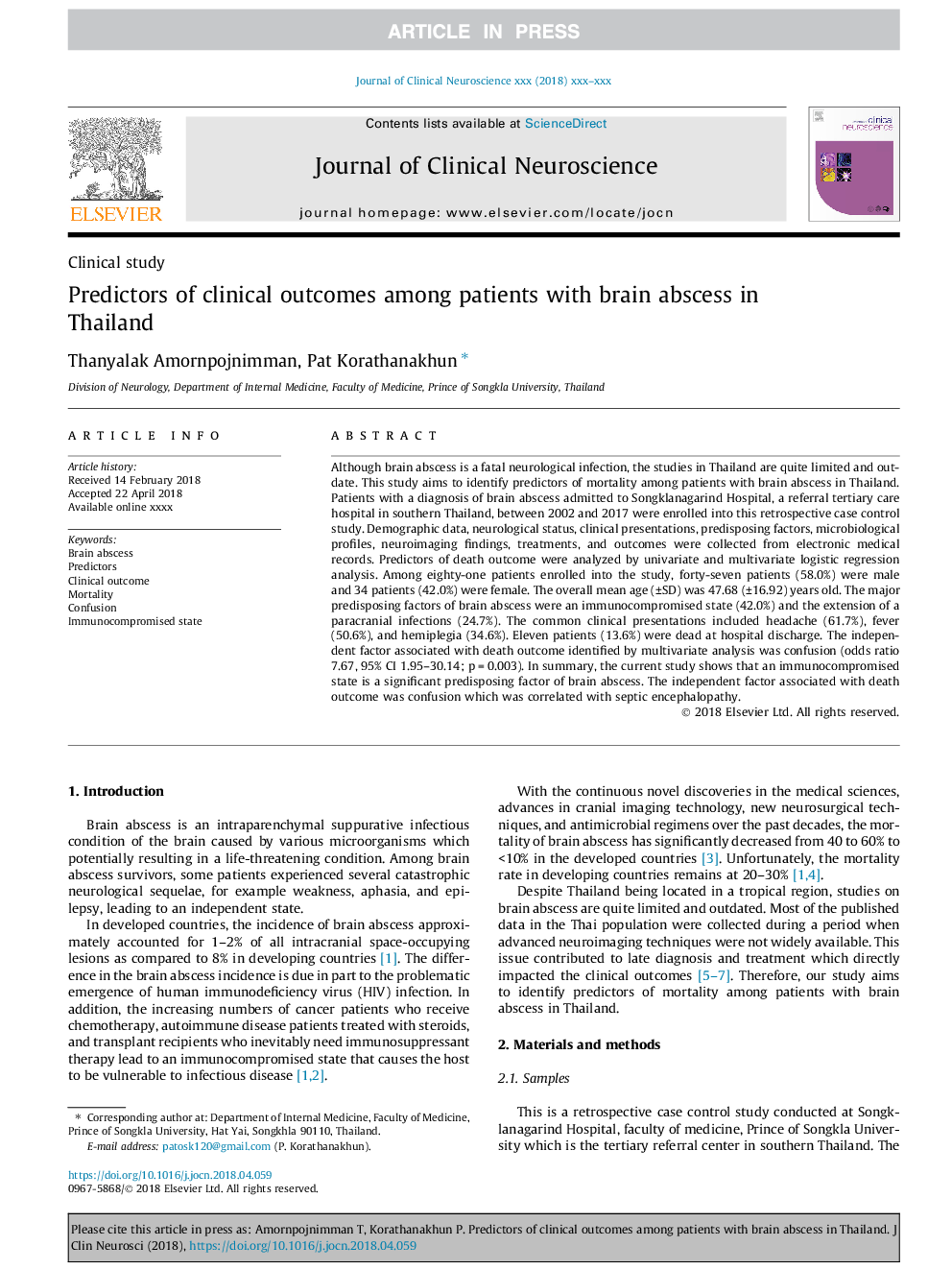| Article ID | Journal | Published Year | Pages | File Type |
|---|---|---|---|---|
| 8685027 | Journal of Clinical Neuroscience | 2018 | 5 Pages |
Abstract
Although brain abscess is a fatal neurological infection, the studies in Thailand are quite limited and outdate. This study aims to identify predictors of mortality among patients with brain abscess in Thailand. Patients with a diagnosis of brain abscess admitted to Songklanagarind Hospital, a referral tertiary care hospital in southern Thailand, between 2002 and 2017 were enrolled into this retrospective case control study. Demographic data, neurological status, clinical presentations, predisposing factors, microbiological profiles, neuroimaging findings, treatments, and outcomes were collected from electronic medical records. Predictors of death outcome were analyzed by univariate and multivariate logistic regression analysis. Among eighty-one patients enrolled into the study, forty-seven patients (58.0%) were male and 34 patients (42.0%) were female. The overall mean age (±SD) was 47.68 (±16.92) years old. The major predisposing factors of brain abscess were an immunocompromised state (42.0%) and the extension of a paracranial infections (24.7%). The common clinical presentations included headache (61.7%), fever (50.6%), and hemiplegia (34.6%). Eleven patients (13.6%) were dead at hospital discharge. The independent factor associated with death outcome identified by multivariate analysis was confusion (odds ratio 7.67, 95% CI 1.95-30.14; pâ¯=â¯0.003). In summary, the current study shows that an immunocompromised state is a significant predisposing factor of brain abscess. The independent factor associated with death outcome was confusion which was correlated with septic encephalopathy.
Related Topics
Life Sciences
Neuroscience
Neurology
Authors
Thanyalak Amornpojnimman, Pat Korathanakhun,
